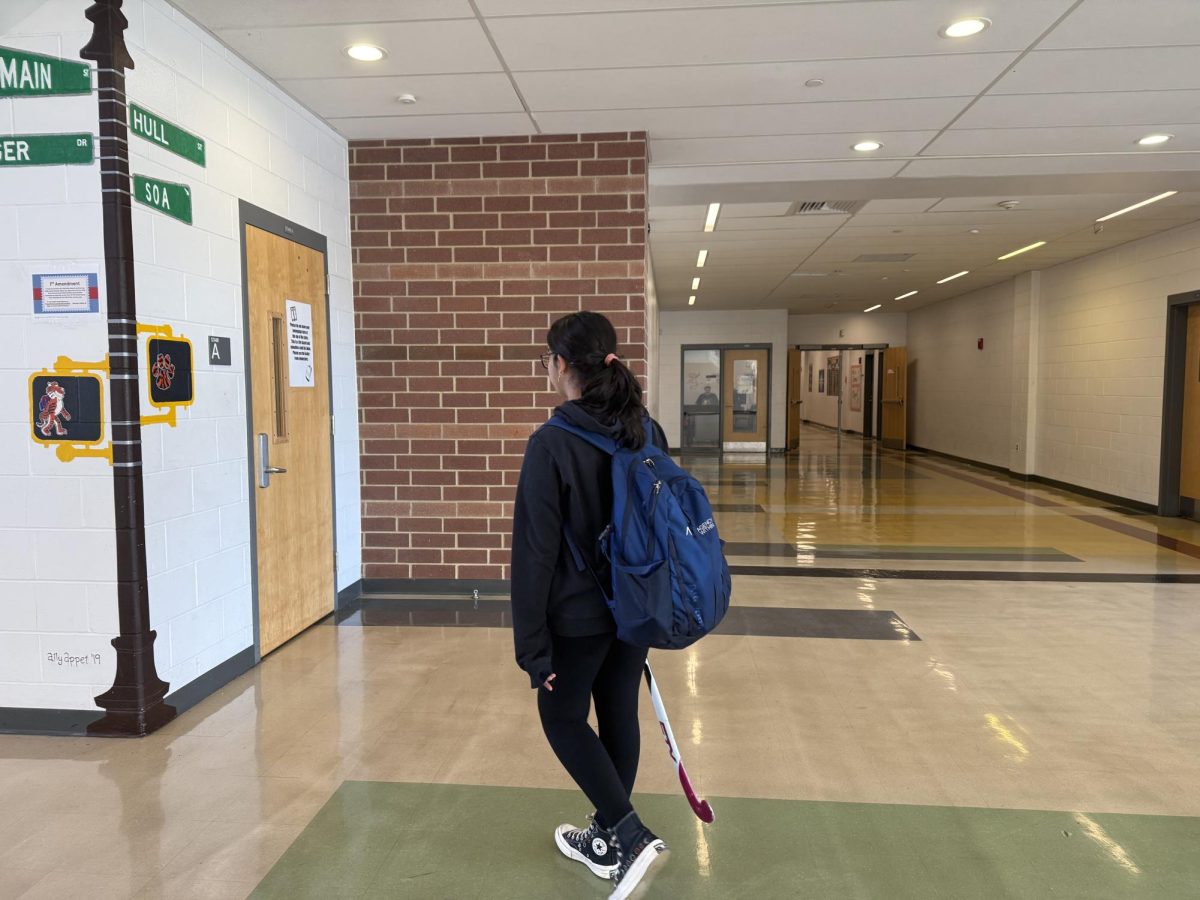
by Malini Gandhi
In the past, Advanced Placement science lab instructions have read a bit like recipes in a step-by-step cookbook. To observe osmosis in action, (1) put a potato in set concentrations of sucrose, (2) measure the change in mass overnight, (3) clean up, (4) done.
But starting this year, the College Board’s overhaul of the Advanced Placement Biology curriculum has meant that the recipe method has been placed pointedly in the recycling bin.
Instead of beakers neatly labeled in marker with set sucrose concentrations, a visit to an AP Biology classroom during the annual osmosis lab finds groups of students sitting around a jumble of unlabeled beakers, debating which of multiple solutions to experiment with and “actively debating how to set up their tests and interpret the results,” according to science teacher Karen Tokos, who teaches AP Biology.
The College Board’s revisions to the AP science courses, which began with the launch of the new AP Biology curriculum this September and will continue with the implementation of a revised AP Chemistry curriculum in September, revolve around the idea of reducing retention of facts and encouraging “the development of scientific inquiry and reasoning skills,” according to the College Board website.
Yet the alterations have received mixed responses so far, and they seemed to have raised more questions than they have answered. How can a balance be struck between providing students with the necessary information and allowing time for thought and inquiry? And, what does it entail to simulate a first year introductory college science course in a high school setting?
Changes in AP Biology: In Theory
The College Board altered the AP Biology curriculum with the goal of eliminating material from the course to make room for inquiry-based labs that encourage students to design their own experiments, according to science teacher Jo-Anne Purdy, who teaches AP Biology.
According to Purdy, the AP Biology exam itself reflects this change: the multiple choice questions are pithier and require more analysis instead of simply regurgitation of facts, there is a new section of math grid-ins and the open-response section is significantly longer.
Science teacher Ann Dannenberg, who taught AP Biology last year, said that the College Board’s goal is laudable and that the traditional focus on a truckload of information is counterproductive.
“There was twice as much material as there should be stuffed into a short amount of time,” she said. “I found that just as things would start getting interesting, it was time to move on to the next subject. It doesn’t do service to the discipline. Kids can’t embrace it. They just have to do it.”
Thus, Tokos said the focus on lab-based inquiry skills as opposed to broad information is “superb in its ideal.”
“Emphasizing depth and inquiry is much more representative of true scientific process,” Tokos said. “And with a focus on inquiry, the habits of mind that a student practices to understand one topic in great detail may be useful to gain insights into another topic with which the student has little familiarity.”
Changes in AP Biology: In Practice
Yet how has this idea of inquiry over information played out in its first few months on the ground?
The entire curriculum is “still in its early phase, so it’s hard to evaluate it yet,” according to Purdy. However, Purdy said that the lab aspect of the new curriculum, which involves replacing the cookbook set-up with more open-ended experiments, has proved to be “very positive so far.”
“The labs are more interesting and not as rote, and I have found that I can really see kids think,” Purdy said. “As a teacher, it’s been an eye-opening experience—I have sometimes found myself thinking: ‘Why didn’t we do it that way before?’”
And students seem to be responding favorably to the new labs as well. According to junior Eliana Gevelber, the labs are “often surprising and really force us to ask questions and try to figure things out.”
Gevelber said she has also enjoyed the lab presentations in which students present their data and analysis to the class, a component which the AP Biology teachers added this year in addition to written lab reports.
“The lab presentations are valuable because they allow us to hear how other groups carried out the experiment differently and follow their thought process,” Gevelber said, “It’s a different, more puzzle-like way of learning.”
Yet while the new curriculum’s emphasis on inquiry seems to be in motion, the result of the College Board’s promise to cut a substantial amount of material from the course in order to leave time for inquiry was met by Dannenberg, Purdy and Tokos with a laugh.
“So far, there has not been a single topic that we have eliminated in comparison to the course that was taught last year,” Tokos said.
The result is that, according to Tokos, teachers are expected to cover practically the same amount of course material before the exam, with even more pressure added by the fact that the unpredictable inquiry-based labs take more time to setup and carry out.
“So far, we have found it necessary to compromise a bit between the old and the new labs in order to keep an instructional pace that will come near to preparing sufficient content for the AP exam in May,” she said.
Thus, Tokos concluded the still hefty amount of material in the AP Biology curriculum dilutes the positive value of the inquiry-based labs, a position echoed by Dannenberg. According to Tokos, “The inquiry part of the new AP philosophy is coming through. The depth over breadth still needs work.”
Yet according to Purdy, the question of what material can be cut and how to best balance necessary information and inquiry becomes tricky. She admits that, “we wish we could let some stuff go, but it’s hard because a lot of it’s essential.”
And senior Amalia Sweet, who took AP Biology last year and is currently a Teaching Assistant for the class, believes that all of the detailed information is necessary to provide the scope of biology expected in a college introductory biology course. According to Sweet, none of the information should be sacrificed for inquiry.
“I can see how people could like the more hands-on approach, but I think that the goal of the new curriculum to replace material with inquiry is not an adequate representation of a college introductory biology course, where you are expected to be doing substantial textbook reading and covering the scope of biology,” Sweet said.
Into the Future
The debate over balancing the necessary groundwork of information with opportunities to experiment and inquiry is far from over.
Like its AP Biology counterpart, the AP Chemistry revision to be launched next September will put less emphasis on lecture-based learning and more on hands-on, inquiry-based labs.
Science teacher Peter Hamel, who teaches AP Chemistry, said that he has seen “lots of students capable of plugging numbers into formulas but who don’t have any idea of the significance of the calculation.” He hopes that the new curriculum will remedy this by “stressing reasoning and giving kids more autonomy to think, rather than focusing on getting the right answer.”
And this wave of rethinking science education does not stop at AP science courses.
According to science department head Amy Winston, the nationwide Next Generation Science Standards (NGSS) will be finalized in the spring, and the Newton Public Schools will revise its k-12 science curriculums to align with these new standards. Winston said that these standards “explicitly balance the instruction of practices of inquiry with core scientific knowledge.”
According to Winston, “I strongly believe that the framework for the NGSS strikes the right balance of these three critical parts of science education today. We can’t possibly teach students all of the scientific knowledge that exists but we can, in K-12, teach students the scientific practices that will continue to help them learn—and to do—science.”








































